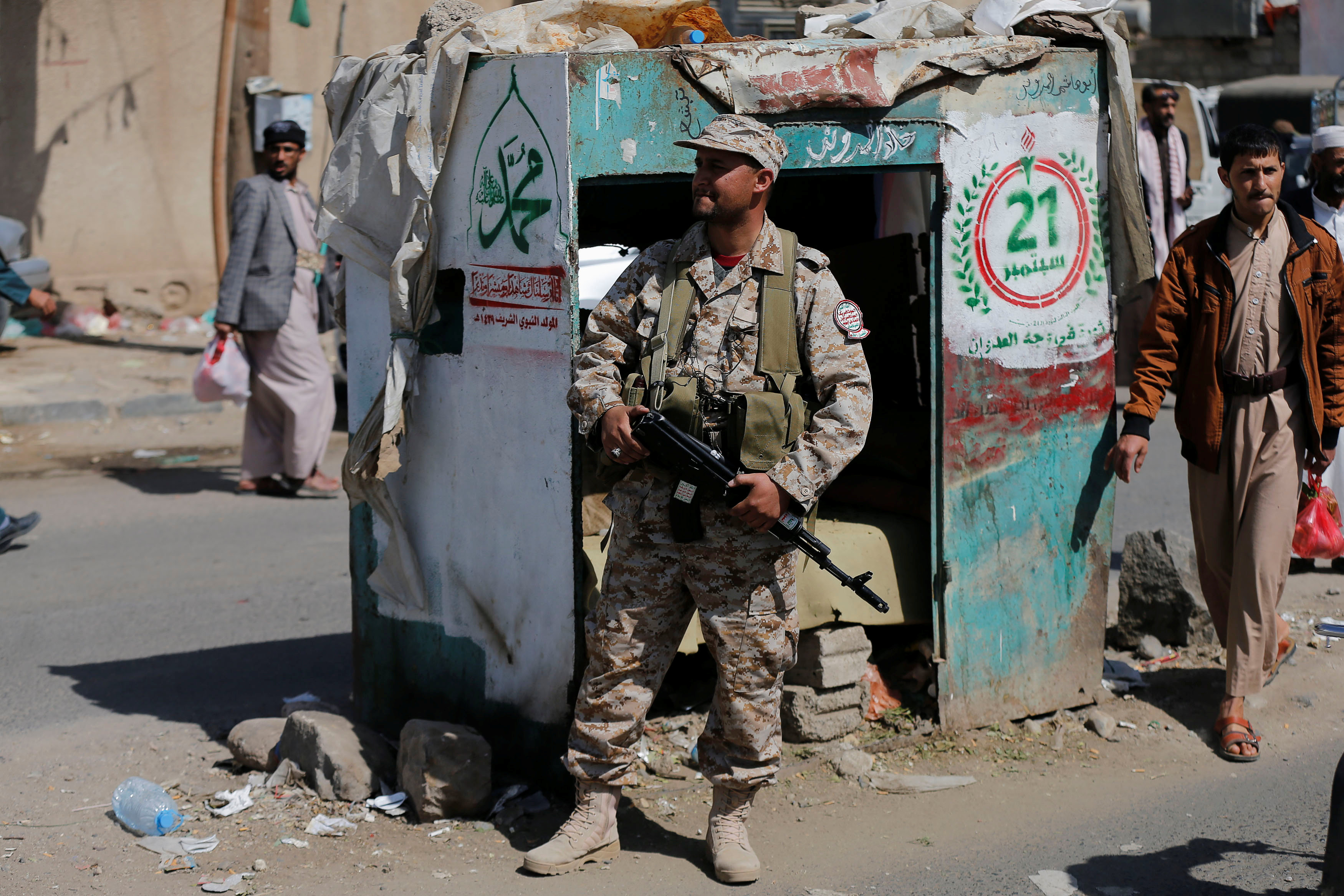
SAADA, Yemen (Reuters) – Thousands of mourners on Monday buried dozens of children killed in a Saudi-led coalition air strike on a bus in northern Yemen, one of the deadliest attacks on civilians in the three-year-old war.
At least 40 children were killed in Thursday’s raid which hit the bus as it drove through a market of Dahyan, a town in Saada, the armed Houthi group which controls the province said.
Amid outrage from international human rights groups and U.N. officials, Riyadh continued to defend the raid as a “legitimate military action” intended to hit Houthi leaders, a day after it authorized a coalition investigation of the strike.
Wooden coffins, most with a picture of a child, were taken by cars and carried by pallbearers to a graveyard from a square where prayers were held earlier. “Death to America, death to Israel,” the crowd chanted, echoing the Houthis’ slogan.
The shrouded bodies were removed from the coffins and placed in a row of unmarked graves that had been dug on Friday.
“My son went to the market to run house errands and then the enemy air strike happened and he was hit by shrapnel and died,” said Fares al-Razhi, mourning his 14-year-old son.
“For my son, I will take revenge on Salman and Mohammed Bin Zayed,” he said, referring to leaders of Saudi Arabia and the United Arab Emirates (UAE).
The Gulf Arab states are leading the alliance of Sunni Muslim countries that intervened in Yemen’s war in 2015 to try to restore the internationally recognized government that was expelled from the capital Sanaa by the Houthis in 2014.
The coalition said on Friday it would investigate the strike after U.N. Secretary-General Antonio Guterres condemned the attack and called for an independent probe.
But on Saturday, state news agency SPA said Riyadh’s mission to the world body delivered a message to Guterres reiterating that the raid was “legitimate” and targeted Houthi leaders “responsible for recruiting and training young children”.
“War can’t be a clean operation, unfortunately,” UAE Minister of State for Foreign Affairs Anwar Gargash told reporters in Dubai when asked about the Saada attack. “But I will say all parties need to accept their part in what they are doing today.”

Mourners attend the funeral of people, mainly children, killed in a Saudi-led coalition air strike on a bus in northern Yemen, in Saada, Yemen August 13, 2018. REUTERS/Naif Rahma
TALKS PLANNED
The coalition initially said after the attack that the strike had targeted missile launchers that were used by the Houthis to attack the southern Saudi province of Jizan.
The Houthis’ health minister Taha Mutawakil said last week that the number of casualties stood at 51 killed including 40 children, and at least 79 people wounded, of which 56 were children. The International Committee of the Red Cross reported the same toll on Friday, citing authorities in Saada.
The Houthi-run al-Masirah TV on Monday quoted a health official as saying another child had died from his wounds, raising the toll to 52.
The head of the Houthis’ supreme revolutionary committee, Mohammed Ali al-Houthi, attended the funeral and blamed the United States for “this ugly massacre of Yemeni children”.
The United States and other Western powers provide arms and intelligence to the alliance, and human rights groups have criticized them over coalition air strikes that have killed hundreds of civilians at hospitals, schools and markets.
A U.S. military spokeswoman said U.S. forces were not involved in Thursday’s air strike. The U.S. State Department urged the alliance to “conduct a thorough and transparent investigation”.
U.S. Defense Secretary Jim Mattis said on Sunday he has dispatched a three-star general to Riyadh to “look into what happened”.
The coalition says it does not intentionally target civilians and has set up a committee to probe alleged mass casualty air strikes, which has mostly cleared it of any blame.
The Houthis have also been criticized by rights groups.
The U.N. special envoy to Yemen has been shuttling between the warring parties ahead of holding consultations in Geneva on Sept. 6 to try to end the conflict that has killed more than 10,000 people and pushed the impoverished Arab country to the verge of starvation, according to the United Nations.
The UAE’s Gargash said he hoped the Geneva talks signaled the start of a process that would lead to a political solution to the conflict — which is widely seen as a proxy war between Saudi Arabia and regional foe Shi’ite Muslim Iran.
(Reporting by Reuters team in Yemen, Maha El Dahan in Dubai and Yara Bayoumy in Washington; Writing by Ghaida Ghantous, Editing by Alison Williams, William Maclean)












